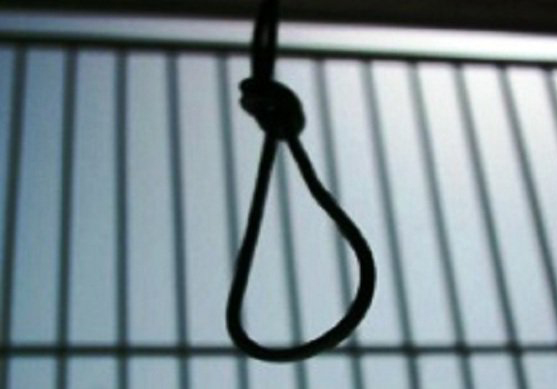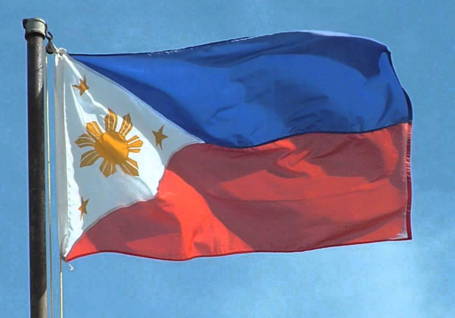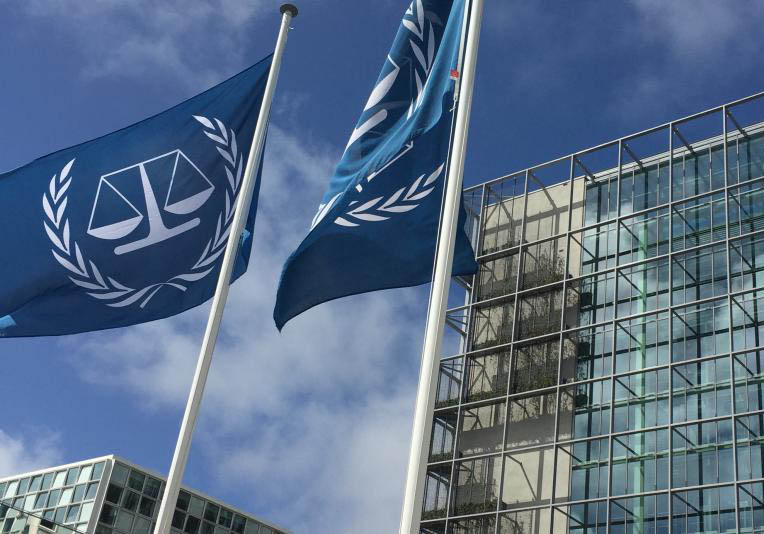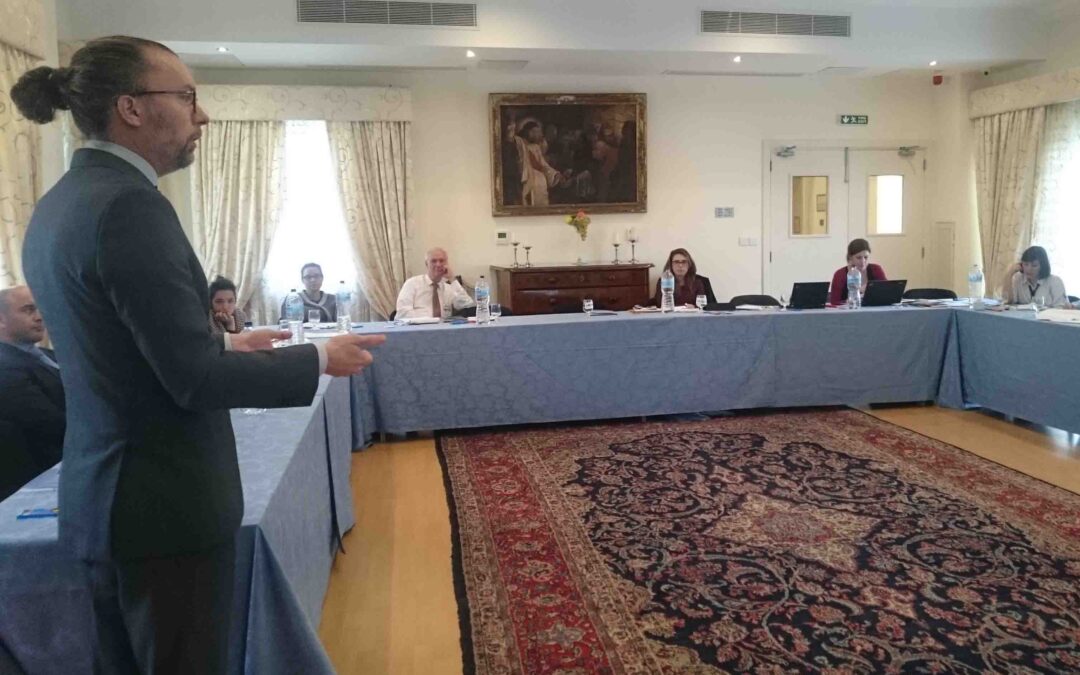
Mar 21, 2017 | News
The ICJ today called on the Untied Arab Emirates (UAE)’ authorities to immediately release Ahmed Mansoor, the 2015 Laureate of the Martin Ennals Award for Human Rights Defenders, and to ensure that he is not subjected to any form of ill-treatment as long as he remains detained.
On 20 March 2017, security officials raided the apartment where Ahmed Mansoor and his family resides and confiscated electronic devices. They took Ahmed Mansoor away at around 3:15AM local time. His present whereabouts remain unknown.
The authorities have not informed his family members of the reasons for his arrest, the authority that ordered such arrest, or the location to which he was taken.
The ICJ calls upon the UAE authorities to disclose, as a matter of urgency, Ahmed Mansoor’s place of detention and provide full information about his fate and whereabouts.
International law requires that detainees be held in officially recognized places of detention and that no one is held secretly in detention, whether in officially recognized detention facilities or elsewhere.
The ICJ fears that the arrest and secret detention of Ahmed Mansoor is likely related to his human rights work, protected under international law.
His activities involve the exercise of his right to the freedom of expression, including his use of social media to criticize attacks on human rights defenders in the UAE.
“Arbitrarily detaining Ahmed Mansoor and subjecting him to secret detention exemplifies the lengths to which the UAE authorities are prepared to go in their relentless campaign to suppress peaceful human rights work and to reduce to silence all those perceived to be critical of the authorities,” said Said Benarbia, Director of the ICJ Middle East and North Africa Programme.
“The UAE authorities must comply with their obligations under international law and release immediately and unconditionally all those individuals detained or imprisoned solely for peacefully exercising their rights to freedom of expression and association,” he added.
Mansor’s arrest and secret detention comes amidst a continuing crackdown on individuals calling for peaceful political reform.
Many of them were subjected to serious human rights violations, including torture and other-ill-treatment, arbitrary detention and enforced disappearances.
The ICJ has previously documented such cases.
Contact:
Said Benarbia, ICJ Director of the Middle East and North Africa Programme, t: 41 22 979 38 17, e: said.benarbia(a)icj.org
Background
Ahmed Mansoor is a highly prominent human rights defender in the UAE and well known in the Arab region and around the world.
He has regularly monitored and raised awareness about cases of serious human rights violations in the UAE, including cases arbitrary detention, torture and other ill-treatment, enforced disappearances and violations of fair trial rights.
Since 2006, has faced repeated intimidation and harassment, including imprisonment in 2011 after being convicted of “insulting officials” and sentenced to three years’ in prison, although he was released after eight months.
Since being jailed in 2011, he has been denied a passport and banned from travelling.

Mar 3, 2017 | News
The ICJ today urged the Philippine Congress to bring a halt to the Government’s attempt to bring back capital punishment.
The Philippine Congress’s attempt to restore this heinous practice is in blatant breach of its international legal obligations.
The ICJ condemned the approval on second reading of a bill to restore the death penalty by the Philippines’ House of Representatives on 1 March 2017 and called on legislators to vigorously oppose it and prevent it from being passed on final reading.
If adopted, the legislation will place the Philippines at odds with its legal obligation under international treaties to which it is party, the International Covenant on Civil and Political Rights (ICCPR) and its second Optional Protocol aiming at the abolition of the death penalty.
The ICJ also expressed concern at the manner in which the bill was effectively railroaded through the Philippine House of Representatives this week when it passed on second reading House Bill 4727, which seeks to reintroduce the death penalty for drug-related crimes.
House Bill 4727 will be put to a final vote on third reading next week. Nominal voting will be done on the third reading of the bill, which means that one by one, legislators would be called to explain their vote.
To marshal enough support for the bill, pro-death penalty legislators struck off all other crimes that were proposed in the original bill to be punishable by death, such as plunder, treason, and rape.
As it stands now, House Bill 4727 imposes capital punishment only on commission of drug-related crimes. Proponents of the bill claim that this is to support the President’s “war on drugs”.
The controversial measure was approved only eight session days after it reached the plenary for debates on 1 February 2017.
“It is obvious that proponents of State killing as means of “justice” were intent on rushing the passage of the death penalty bill by thwarting any substantial discussion thereon and by pressuring into silence those who oppose it,” said Emerlynne Gil, ICJ’s Senior International Legal Adviser for Southeast Asia.
A similar bill proposing to bring back the death penalty has been filed at the Philippine Senate. The Senate Committee on Justice and Human Rights conducted the first hearing on the bill last 7 February 2017. The Committee Chair, Senator Richard Gordon, indefinitely suspended the hearing until the Department of Justice is able to submit its opinion on the Philippines’ obligations under the ICCPR and its Second Optional Protocol.
“Until recently, the Philippines had set an example of regional and global best practice on the abolition of the death penalty. Reintroducing the death penalty will be an enormous move backward for the country,” Gil emphasized.
The move by the Philippines goes against a global trend towards abolition of the death penalty.
In December, the United Nations General Assembly voted by a large majority, for the sixth time, to adopt a resolution which called on states that have abolished the death penalty not to reintroduce it. It also called on all retentionist States to impose a moratorium on the death penalty with a view to abolition.
The ICJ opposes the death penalty in all cases and considers its use to be a violation of the right to life and freedom from cruel, inhuman, or degrading punishment.
Background
The leadership has sought to bypass normal procedures in hastily pushing through the bill seeking to re-impose the death penalty at various stages of the Philippine Congress.
9 November 2016: the Sub-Committee on Judicial Reforms began hearings on the bill seeking to re-impose the death penalty.
29 November 2016: the Sub-Committee approved the bill after it rushed through the proceedings, ignoring important questions from other lawmakers questioning the need for such legislation. The bill was thereafter referred to the Committee on Justice for further deliberation.
7 December 2016: the Committee on Justice approved the bill and moved that it be debated in plenary.
1 February 2017: the plenary debate on House Bill 4727 began.
8 February 2017: the Speaker of the House of Representatives, in a closed-door caucus among members of the supermajority, threatened that those who oppose the bill will be stripped of their leadership posts in Congress, i.e. committee chairmanships and Deputy Speakerships.
28 February 2017: amidst vehement objections from the opposition, the debate in plenary was ended. This was done despite the fact that only nine out of at least 50 members of Congress who had registered to interpellate the sponsors of the bill had been given the opportunity to do so.
1 March 2017: during the period of individual amendments, the sponsors of the bill invoked omnibus rejection to all proposed amendments, rejecting every proposal that was deemed inconsistent with the House leadership’s agenda of immediately passing the bill. Later that day, the period of individual amendments was ended, despite calls from legislators who wished to make further changes to the bill.
Contact
Ms. Emerlynne Gil, ICJ’s Senior International Legal Adviser, tel. no. +66 840923575, email: emerlynne.gil(a)icj.org

Feb 28, 2017 | News
The ICJ condemns the arrest and detention of Senator Leila De Lima and calls for her immediate release.
The ICJ believes that the charges brought against Senator De Lima are fabricated and thus considers her prosecution to be politically motivated and amounting to judicial persecution.
Senator De Lima is a staunch critic of President Rodrigo Duterte.
“This is clearly meant to silence for good a vocal critic of President Rodrigo Duterte,” said Sam Zarifi, ICJ’s Regional Director for Asia and the Pacific.
In August 2016, Senator De Lima led an investigation by the Senate Committee on Justice and Human Rights into hundreds of cases of extrajudicial killings occurring after President Duterte assumed power.
On 19 September 2016, however, she was removed by her colleagues from her position as chairperson of the said committee due to their concerns towards her “continuous efforts to destroy the President”.
Weeks before her removal, on 25 August 2016, President Duterte had accused Senator De Lima of running a drug trafficking ring inside New Bilibid Prison during her stint as Justice Secretary.
Subsequently, on 20 September 2016, led by the President’s allies in the Congress, the House Committee on Justice began a probe into these allegations against De Lima and in turn, on 17 February 2017, the Department of Justice filed three charges against her under the Comprehensive Dangerous Drugs Act of 2002 (Republic Act 9165): Section 5 specifically with “trading” in illegal drugs, Section 26(b), and Section 28. If found guilty, she may face the penalty or a prison sentence ranging between twelve years to life imprisonment.
Senator De Lima was then arrested on 23 February 2017.
“If the government really wants to defeat the illegal drug trade, there should be more prosecutions before domestic courts. We do not see this, however. We only see active persecution of those who are critical of the President’s ‘war on drugs’,” Zarifi added.
The ICJ also noted with profound concern the statements of officials from the Philippine government, including the Secretary of Justice, alluding to the Senator’s guilt which – apart from being inconsistent with the right to the presumption of innocence – constitute additional evidence that the charges against her are a blatant attempt not only to silence her for good but also to discredit her in the eyes of the public.
The right to presumption of innocence is an absolute right. According to the UN Human Rights Committee, public authorities and officials have a duty to restrain from prejudging the outcome of a trial, by refraining from making public statements appearing to affirm the guilt of the accused.
The ICJ believes that public authorities and officials, including prosecutors, may inform the public about criminal investigations or charges but should not express a view as to the guilt of any defendant.
The ICJ calls on the Philippine government to immediately release Senator De Lima and immediately stop any further acts of harassment against her and other public critics of the government.
Contact
Emerlynne Gil, ICJ’s Senior International Legal Adviser for Southeast Asia, t: +66 2 619 8477 ext. 206 or +66 840923575 ; e: emerlynne.gil(a)icj.org

Feb 23, 2017 | News
The ICJ has welcomed the decision by The Gambia to rescind their notice of withdrawal from the International Criminal Court (ICC), as well as a decision of the South African High Court to nullify a similar withdrawal notice by South Africa.
On 16 February 2017, The Gambia filed a notice with the United Nations (UN) Secretary General that it was withdrawing its previous notice of denunciation from the Rome Statute for the ICC made last year by the Government of former President Yahya Jammeh.
The South African High Court ruled on 22 February 2017 that the withdrawal by South Africa was unconstitutional and invalid, as the Government had bypassed the Parliament in taking its decision. The ICJ urges the South African government to promptly comply with the High Court order and to abandon any further moves at withdrawal.
The ICJ also calls on government Burundi to reverse similar moves to withdraw Burundi from the jurisdiction of the ICC
“The ICC is a bedrock component of the architecture developed by the international community over decades to tackle impunity for the most serious crimes and gross human rights violations occurring throughout the world,” said Arnold Tsunga, Director of the ICJ Africa Program.
“African States have been the largest bloc of support for the ICC. Notwithstanding recent public rhetoric at the African Union, African States are in a position to show global leadership and reaffirm their commitment to the ICC and international justice,” he added.
The ICJ considers that while there are aspects of the ICC that require reform, there is at present no viable framework to combat impunity for genocide, war crimes, crimes against humanity and aggression other than the ICC.
“African Member States have a great potential to push for appropriate reform of the ICC with a view to tackling impunity globally,” said Arnold Tsunga.
Contact
Arnold Tsunga, t: +27716405926 ; e: arnold.tsunga(a)icj.org

Feb 16, 2017 | Agendas, Events, News, Training modules
Today, the ICJ and Aditus are holding a training for lawyers on the rights of migrant children and on accessing international human rights mechanisms in Valetta.
The training aims to support the strategic use of national and international mechanisms to foster migrant children’s access to justice.
The training will take place over the course of two days 16-17 February 2017.
The training will focus on accessing the international mechanisms in order to protect and promote the rights of migrant children, the child’s right to be heard and economic, social and cultural rights.
A practical case analysis will be part of the training. Trainers include experts from the ICJ and the Hague University.
The training is based on draft training materials prepared by the ICJ (to be published in the second half of 2017) and the ICJ Practitioners Guide no. 6: Migration and International Human Rights Law.
It is organized as part of the FAIR project co-funded by the Rights, Equality and Citizenship Programme of the European Union and OSIFE.
As part of the project, this training follows the trainings on the rights of migrant children in Spain, Italy and Bulgaria, trainings in Germany, Greece and Ireland will follow this year.
Download the agenda in English here:
Malta-FAIR training-News-Agenda-2017-ENG









